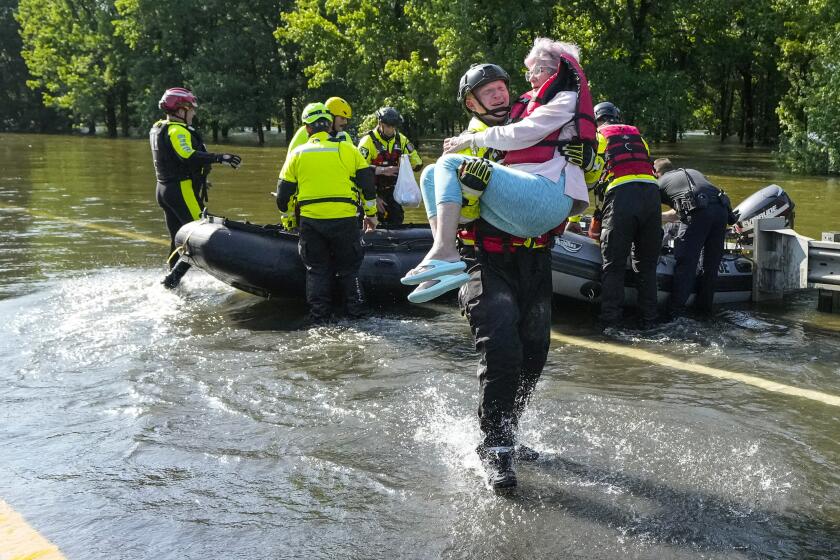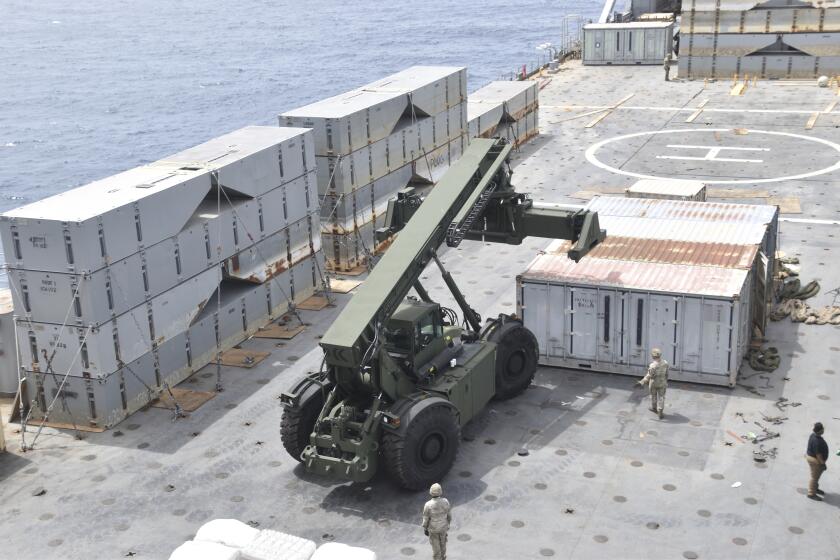Yugoslav Tensions High Despite Accord
The battle of nerves between Yugoslavia’s military and the country’s two breakaway republics escalated sharply Saturday, only hours after the Yugoslav presidency formally endorsed a peace plan aimed at averting civil war.
Although the collective presidency’s acceptance of the European Community plan cleared the way for its implementation and raised a glimmer of hope for maintaining an uneasy peace, the tenor of the 14-hour debate that preceded the decision, coupled with demands attached to it, served to heighten tensions in Slovenia and Croatia, the republics that declared their independence last month.
Officials here in the Croatian capital expressed worry Saturday about the intentions of the 180,000-strong Yugoslav army, a proud, well-motivated force dominated by officers from Serbia, Croatia’s historic rival.
The army’s senior officer corps is said to be dedicated to the idea of preserving Yugoslav unity and highly suspect of the democratization process that has led this unity to unravel.
It also opposed the EC’s plan, which calls for 50 international observers to monitor the truce, the demobilization of militias from the republics and the return of the army to its barracks.
Diplomats and Croatian politicians from the neighboring republic of Bosnia-Herzegovina have reported large concentrations of army forces along that republic’s frontier with Croatia in recent days, and there have been repeated accounts of Yugoslav air force planes conducting low, intimidating passes over Croatian communities.
Sporadic fighting between Croats and Serbs in the Slavonian region of eastern Croatia has also intensified and the air is electric with anticipation and fear.
According to those familiar with Friday’s meeting of the eight-member collective presidency in Belgrade, there were heated exchanges during the debate between army commander Veljko Kadijevic and the presidency’s current chairman, Stipe Mesic of Croatia.
The presidency announced its acceptance of the EC-brokered plan in a communique that also contained a demand that “all armed forces in the (federal Yugoslav) territory except the army and regular peacetime police forces” be demobilized by midnight next Thursday. This demand was viewed as a concession to the army and, possibly, the price of the army’s acceptance of the plan.
There was no mention in the communique of the army’s return to barracks.
However, at a news conference here Saturday, Mesic warned the army that any unilateral action on its part would undermine what little remains of the nation’s federal civilian authority.
“If the accord is not observed, then there’s no need for the presidency or the president (chairman),” he said.
It remained unclear Saturday which units were covered by the presidency’s demobilization order.
More to Read
Start your day right
Sign up for Essential California for news, features and recommendations from the L.A. Times and beyond in your inbox six days a week.
You may occasionally receive promotional content from the Los Angeles Times.






